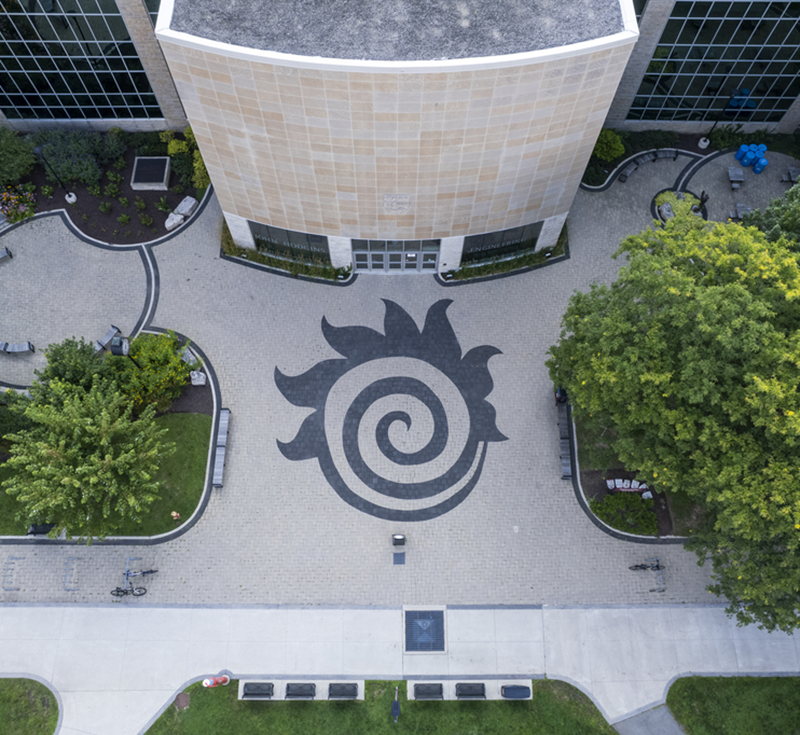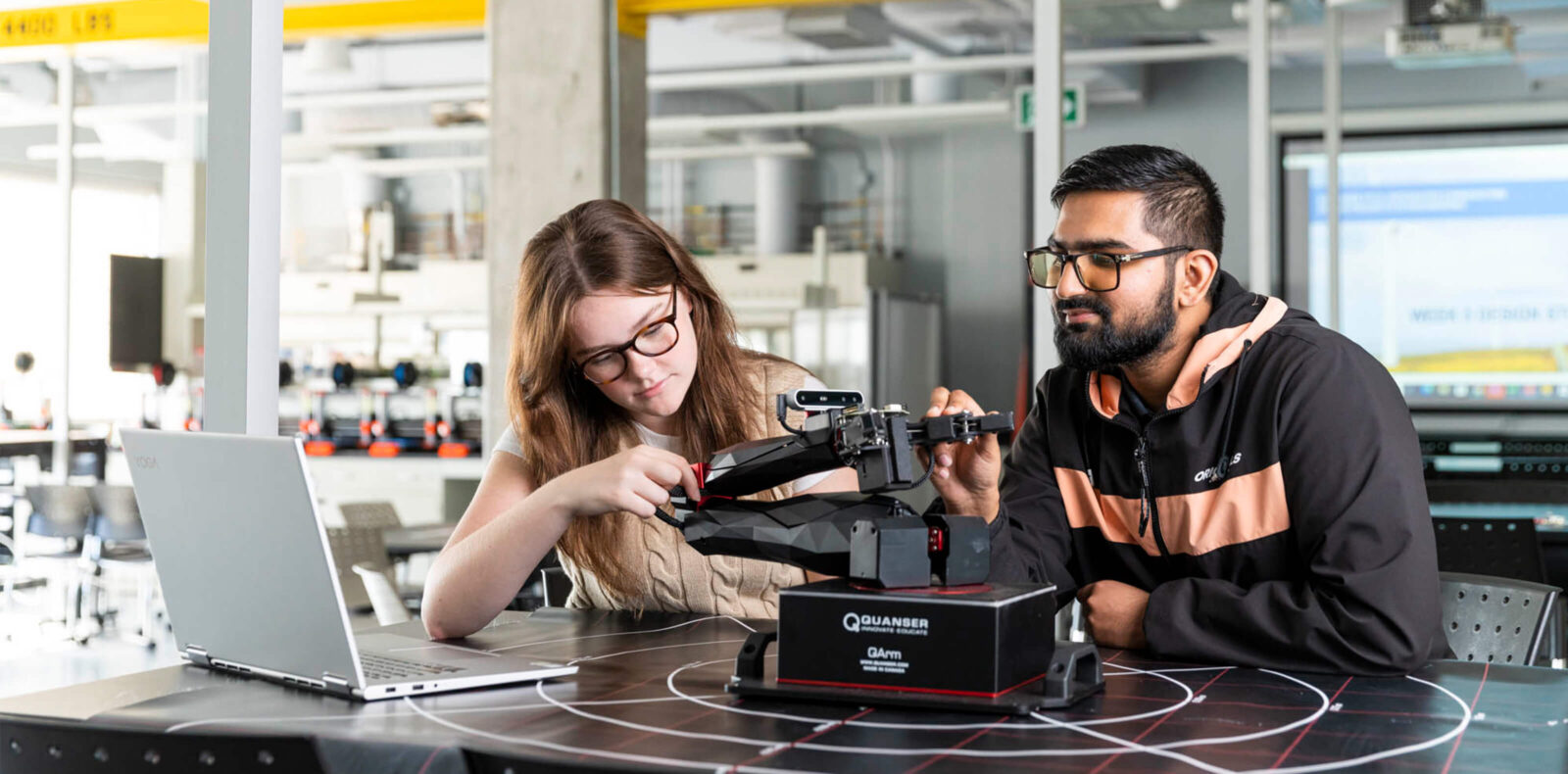“McMaster Engineering is my dream program and I’m so thankful for having chosen it! The general first-year option is so helpful when deciding what stream you want to apply for. It can be difficult to know right out of high school exactly what you want and the ability to explore a little bit of everything is a unique one that lets you get an idea of what’s out there.”
A collective first year
Engineering 1 focuses on experiential, collaborative and project-based learning, where students take real problems in society and learn the technical and teamwork skills to solve them.
In their first year, students will gain broad exposure to engineering before choosing a specialization for the second year and beyond.
3 unit(s)
An introduction to chemical principles for Engineering students, including reactivity, bonding, structure, energetics and electrochemistry.
Three lectures, one lab (two and one half hours) every other week; one term
MATH 1ZA3 – Engineering Mathematics I
3 unit(s)
Functions: limits, continuity, derivatives, optimization, curve sketching. Antiderivative, definite integral, techniques of integration, with applications.
Three lectures, one tutorial, one lab; one term
MATH 1ZB3 – Engineering Mathematics II-A
3 unit(s)
Techniques of integration, applications of definite integrals, differential equations, polar coordinates, parametrized curves. Sequences, infinite series, power series. Partial derivatives.
Three lectures, one tutorial, one lab; one term
MATH 1ZC3 – Engineering Mathematics II-B
3 unit(s)
Vector spaces given by solutions to linear systems. Linear independence, dimension. Determinants. Eigenvalues, eigenvectors and diagonalisation. Complex numbers.
Three lectures, one tutorial, one lab; one term
3 unit(s)
A course for engineering students. Oscillations and waves, interference; electrostatics, electric potential, circuit elements; magnetic fields.
Three lectures, one lab (three hours) every other week; one term
3 unit(s)
A course for engineering students. Principles of mechanics of particles and rigid bodies, including Newton’s Laws, rotational kinematics and dynamics, torque, energy, momentum, angular momentum, and simple harmonic motion.
Three lectures, one lab (three hours) every other week; one term
Choose from a broad list of complementary electives.
13 unit(s)
Project-based integrated learning course that introduces a range of foundational (i.e., cornerstone) topics in engineering, including engineering design and communication, computation, graphic design, materials and the engineering profession. These topics are applied through a series of integrated team-based design projects in simulated workplace environments
Three lectures, one tutorial (two hours), two labs (three hours each); both terms
Considering the purchase of a computer, laptop or tablet? We would recommend a Windows-based device as many engineering programs are designed around a Windows-based operating system.
-
-
“The best part of MacEng is that there is a lot of flexibility when choosing your degree especially since the first year of engineering is general! After first year, students have the opportunity to create their degree to fit them; along with the different streams of engineering, you can add in management, society, or a minor. This allows you to pursue engineering along with any other interests you have.”
-
“I think the main advantage that stands out to me about McMaster Engineering is that first year will allow you to try every stream. Going into engineering, I was almost certain that I wanted to be a mechanical engineer. However, McMaster introduced me to computer programming, and my entire mindset of my future changed.”
-
“McMaster lets you enrol in a general 1st year engineering program, which allows students to gain a further and better understanding of the various engineering fields. It allows one to get a better grip and really understand and narrow down what their interests are to end up a program where they truly feel they belong to. This helped me a lot, as I went in thinking I would specialize in a totally different field from the one I eventually picked!”





